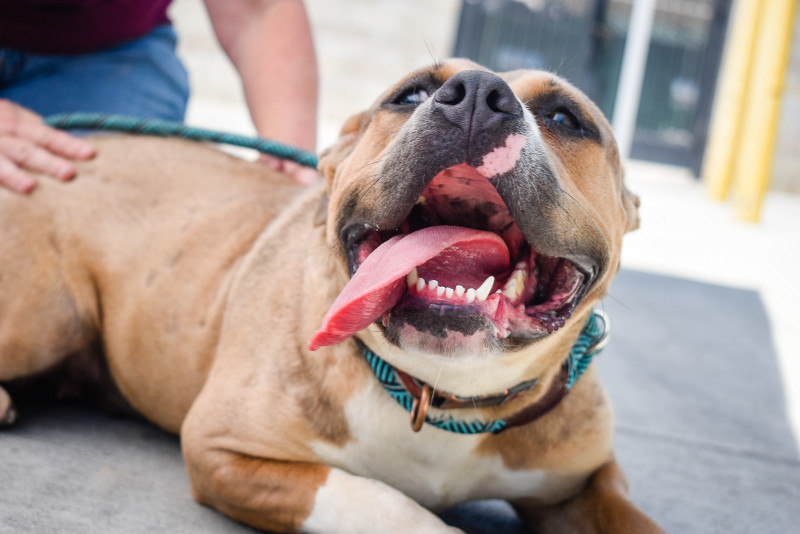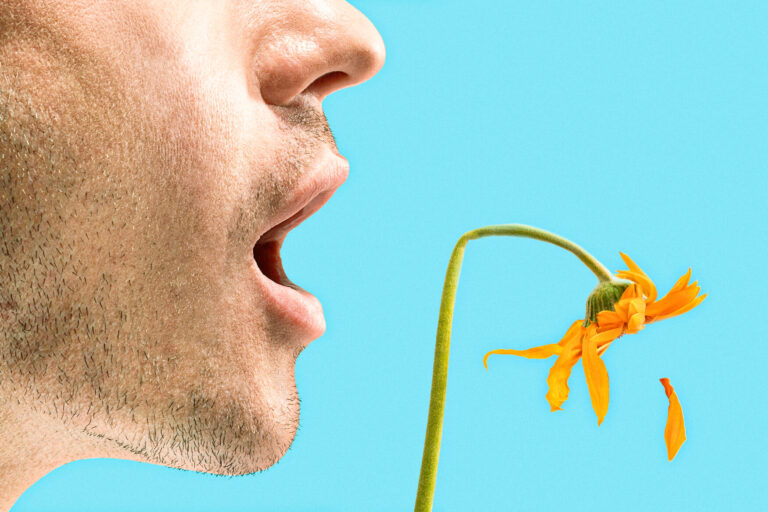Your dog’s bad breath may be caused by dental issues or gastrointestinal problems. It’s essential to identify and address the underlying cause of the bad breath to ensure your dog’s overall health and well-being.
Bad breath in dogs can be a result of various factors, including poor dental hygiene, gum disease, or the presence of oral infections. Additionally, certain medical conditions such as diabetes, kidney disease, or gastrointestinal issues could also contribute to foul-smelling breath in dogs.
Identifying the root cause of your dog’s bad breath is crucial for addressing the issue effectively. This article explores the common reasons behind a dog’s bad breath and provides helpful tips for maintaining your pet’s oral health. Understanding the underlying causes and implementing proper dental care can help improve your dog’s breath and prevent potential health issues.

Credit: themeafordindependent.ca
Unraveling The Mystery Of Canine Halitosis
Bad breath in dogs, also known as canine halitosis, can be a common issue for many pet owners. Recognizing signs of bad breath in dogs is essential for maintaining their overall health. Often, misconceptions about dogs and oral hygiene can lead to neglecting their dental care. Providing regular dental check-ups, using dental treats, and brushing your dog’s teeth can help prevent bad breath. Additionally, a balanced diet and avoiding feeding table scraps can contribute to better oral health. Understanding the causes of bad breath in dogs, such as plaque and tartar buildup, can aid in addressing the issue effectively. By taking proactive measures and seeking professional advice, you can ensure that your dog’s breath stays fresh and clean.
Causes Of Malodorous Dog Breath
There are several reasons why a dog’s breath may have a foul odor, including diet, oral hygiene, periodontal disease, and underlying health issues. A diet high in sugary foods and carbohydrates can contribute to bad breath in dogs. Poor oral hygiene and untreated periodontal disease can also lead to an unpleasant odor emanating from a dog’s mouth. Additionally, underlying health issues such as diabetes, liver disease, or gastrointestinal problems can cause persistent bad breath in dogs. It is important to address these potential causes in order to improve your dog’s oral and overall health.
Combatting Dog Breath Odors: Expert Tips
Bad breath in dogs is a common problem that can be managed with routine dental care. Daily brushing with dog-specific toothpaste and regular professional dental cleanings are essential for maintaining oral health.
Choosing the right dental products for dogs is crucial. Look for toothbrushes and toothpaste that are specifically formulated for canine use. Additionally, dental chews and toys can aid in removing plaque and tartar buildup.
Dietary Solutions And Supplements
When it comes to the question of why your dog’s breath smells bad, dietary solutions and supplements play a crucial role in addressing this issue. Nutrition is key in maintaining fresh breath in dogs, and it is vital to ensure that their diet supports oral health. Probiotics are beneficial for promoting oral health in dogs, as they help maintain a healthy balance of bacteria in the mouth. Additionally, water additives and dental chews are effective in combating bad breath, as they contribute to fresher breath and improved oral hygiene. When providing dietary solutions and supplements for your dog, it’s important to consider these factors to ensure their overall well-being.
Remedies Beyond Brushing
Bad breath in dogs can be caused by a range of factors, including poor dental health. While regular brushing is important, there are additional remedies that can help improve your dog’s breath. Toys and treats designed to promote dental health can help reduce plaque and tartar buildup. Water fountains and dental sprays can also be alternative methods to improve oral hygiene. If your dog’s bad breath persists despite these efforts, it may be advisable to consult a veterinarian to rule out any underlying health issues.
Frequently Asked Questions On Why Do My Dog’s Breath Smell So Bad
Why Does My Dog’s Breath Smell So Bad?
Dogs can suffer from dental issues, such as tartar buildup and gum disease, leading to bad breath. Other causes may include digestive problems, poor diet, or underlying health issues. Regular dental care, proper nutrition, and vet check-ups can help address the problem.
How Can I Improve My Dog’s Breath?
Routine dental care is crucial for fresher breath in dogs. This includes brushing your dog’s teeth, providing dental chews or toys, and scheduling regular professional cleanings with your veterinarian. Additionally, ensuring your dog has a balanced diet and stays hydrated can also contribute to fresher breath.
What Can I Do To Prevent My Dog’s Bad Breath?
Preventive measures for bad breath in dogs involve regular dental care, such as brushing your dog’s teeth, providing dental-friendly treats, and offering appropriate chew toys. Feeding a balanced diet and ensuring your dog drinks enough water can also help maintain fresh breath.
Can Bad Breath In Dogs Indicate A Health Problem?
Yes, bad breath in dogs can sometimes be an indicator of an underlying health issue, such as dental disease, gastrointestinal problems, or metabolic disorders. If your dog’s breath is consistently foul, it’s advisable to consult with a veterinarian to rule out any potential health concerns.
Conclusion
In short, bad breath in dogs is often a sign of dental issues or underlying health problems. Regular dental care and checkups can help prevent bad breath and keep your furry friend healthy. So, next time you notice a stinky smell, take it as a cue to pay a little extra attention to your pup’s dental hygiene.
Keep those kisses fresh and those tails wagging!



